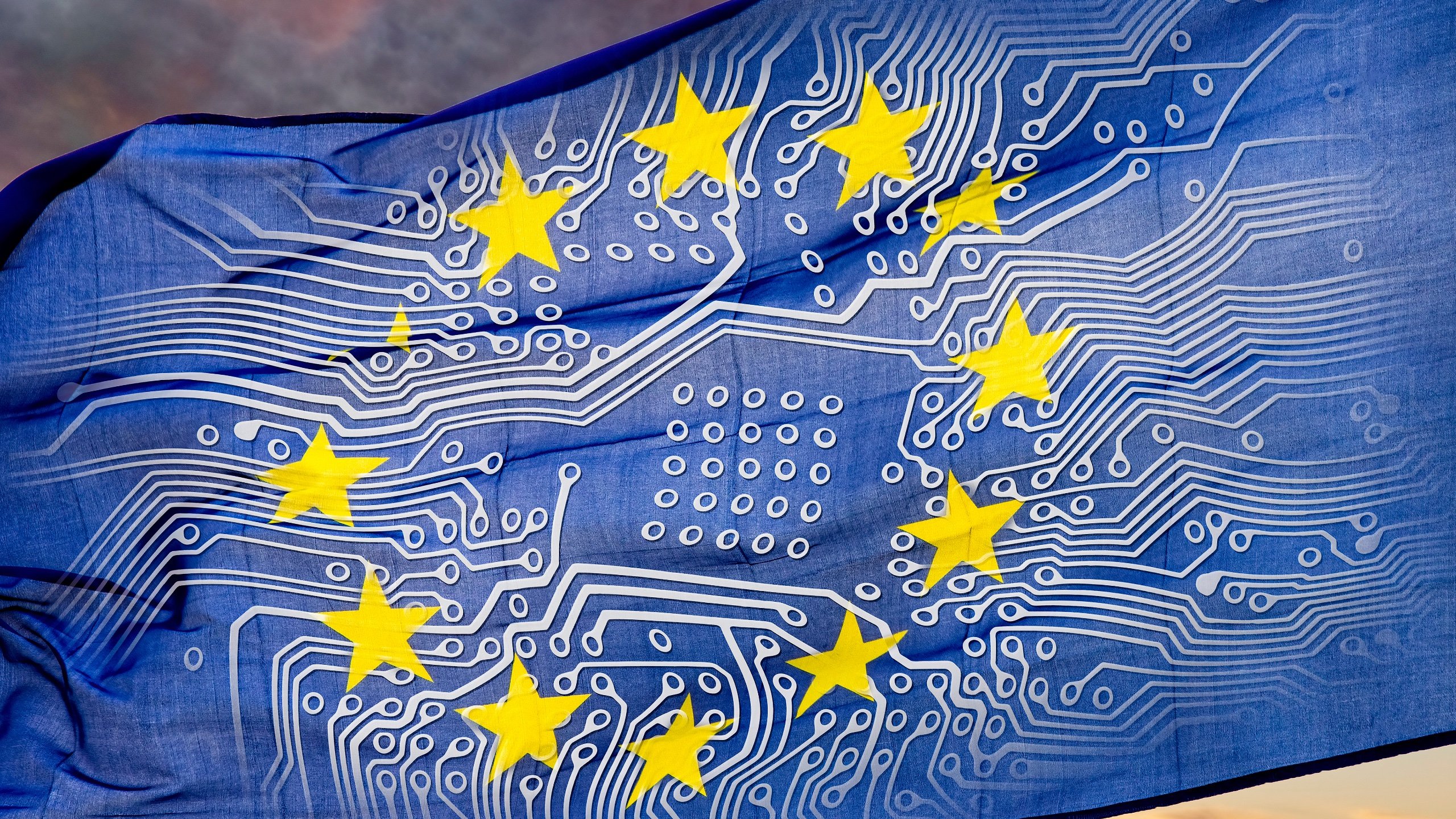
Two European Parliament committees focusing on civil liberties and consumer protection have approved a provisional agreement on the AI Act, establishing the first comprehensive AI regulations globally.
This endorsement, made on Tuesday, Feb. 13, sets an example for AI governance on a global scale. This bill also aims to balance the positive outcomes that AI has brought to different sectors with the need to protect fundamental rights and ensure safety. A legislative assembly vote in April will be the last step before the Act is finally approved.
‼️ AI Act takes a step forward:
MEPs in @EP_Justice & @EP_SingleMarket have endorsed the provisional agreement on an Artificial Intelligence Act that ensures safety and complies with fundamental rights 👇https://t.co/EbXtLBfIoY@brandobenifei @IoanDragosT pic.twitter.com/J3NXRhxd9p— LIBE Committee Press (@EP_Justice) February 13, 2024
Also read: AI Act Gains Momentum With Full Endorsement From EU Countries
Balancing modernization and protection
The AI Act is a crucial milestone in developing a unified framework for AI applications across various industries, such as banking, automotive, electronics, and security. By regulating generative AI and foundation models, including those developed by Microsoft-supported OpenAI, the EU is prepared to establish a setting where AI can learn and complete tasks responsibly. The Act’s provisions aim to address the possible AI risks, including disinformation, job displacement, and copyright infringement, while at the same time favoring innovation and growth.
Eva Maydell, MEP for Tech, Innovation, and Industry, hailed this approval as a milestone that deepens trust in AI technologies without hampering creativity. This legislation, first introduced in 2021, has been through an in-depth discussion, with the regulation of language models and AI use by the police and intelligence apparatus being the main focus. This Act’s approval by the EU countries, in parallel with France’s campaign for reduced red tape on high-risk AI systems, is an example of a joint European effort to assume the lead in ethical AI systems.
The #AIAct has been adopted in committee ✅
Next step: Final vote in plenary 🗳️
This is a result that we can be proud of: One that encourages social trust in #AI while still giving companies the space to create and innovate.
Proud of the result as @EP_Industry rapporteur. pic.twitter.com/86mDaDi3fM
— Eva Maydell (Paunova) (@EvaMaydell) February 13, 2024
Transparency and compliance
The AI Act provides a framework for handling AI systems as it imposes strict requirements, especially for those deemed high-risk, like self-driving cars and healthcare applications. In the event of such business activities, the companies under the EU will be expected to completely disclose the data used in the AI training and conduct rigorous testing of the product. This encompasses the observance of transparency obligations, such as assembling technical documentation and abiding by EU copyright law.
In addition, the Act takes a hard stance against arbitrary data collection for facial recognition databases, but it provides exceptions for law enforcement in cases of terrorism and serious crimes. This multi-layered approach provokes the controversial issue of the balance between security and privacy rights, defining the complicated ethical landscape AI regulation needs to work with.
Big tech corporations have raised concerns that the absence of specific regulations may hinder modernism. Nevertheless, the Act’s attention to security, basic privileges, and the protection of business secrets marks the EU’s attempts to foster a safe and innovative digital existence.
Forward momentum
With the EU on the verge of approving the first AI legislation in the world, the global community closely tracks its actions. The AI Act’s advance to represent a template for other countries indicates the EU’s leadership in digital ethics. With the legislative assembly voting this April, the AI Act is the next stage in the debates on the future of technology and ethical governance. Achieving this balance may set the tone for the future of AI regulation worldwide.
- SEO Powered Content & PR Distribution. Get Amplified Today.
- PlatoData.Network Vertical Generative Ai. Empower Yourself. Access Here.
- PlatoAiStream. Web3 Intelligence. Knowledge Amplified. Access Here.
- PlatoESG. Carbon, CleanTech, Energy, Environment, Solar, Waste Management. Access Here.
- PlatoHealth. Biotech and Clinical Trials Intelligence. Access Here.
- Source: https://metanews.com/ai-regulatory-framework-gets-green-light-from-eu-lawmakers/
- :has
- :is
- :where
- 12
- 13
- 2021
- 7
- a
- achieving
- across
- Act
- actions
- activities
- addition
- address
- adopted
- advance
- against
- Agreement
- AI
- AI Act
- AI governance
- AI risks
- AI systems
- AI training
- aim
- aims
- also
- an
- and
- applications
- approach
- approval
- approved
- April
- arbitrary
- artificial
- artificial intelligence
- AS
- Assembly
- assume
- At
- Attempts
- attention
- automotive
- Balance
- Banking
- basic
- BE
- been
- before
- being
- between
- Bill
- brought
- business
- but
- by
- Campaign
- CAN
- cars
- cases
- civil
- closely
- collection
- committee
- committees
- community
- Companies
- complete
- completely
- complicated
- comprehensive
- Concerns
- Conduct
- consumer
- Consumer Protection
- controversial
- copyright
- copyright infringement
- countries
- create
- creativity
- Crimes
- crucial
- data
- databases
- debates
- deemed
- deepens
- defining
- developed
- developing
- different
- digital
- Disclose
- discussion
- disinformation
- displacement
- documentation
- effort
- Electronics
- encompasses
- encourages
- endorsed
- Endorsement..
- enforcement
- ensure
- ensures
- especially
- establish
- establishing
- ethical
- ethics
- EU
- Europa
- European
- European Parliament
- Event
- example
- existence
- expected
- facial
- facial recognition
- Feb
- final
- Finally
- First
- Focus
- focusing
- For
- Forward
- Foster
- Foundation
- Framework
- from
- full
- fundamental
- future
- future of technology
- Gains
- generative
- Generative AI
- gets
- Giving
- Global
- global scale
- Globally
- governance
- Green
- green light
- Growth
- Handling
- Hard
- Have
- healthcare
- high-risk
- hinder
- HTTPS
- in
- in-depth
- Including
- indicates
- industries
- industry
- infringement
- innovate
- Innovation
- innovative
- Intelligence
- introduced
- issue
- IT
- ITS
- Job
- joint
- landscape
- language
- Last
- Law
- law enforcement
- lawmakers
- lead
- Leadership
- LEARN
- Legislation
- Legislative
- light
- like
- made
- Main
- May..
- MEP
- milestone
- models
- Momentum
- multi-layered
- Need
- needs
- Nevertheless
- next
- obligations
- of
- on
- ONE
- OpenAI
- Other
- outcomes
- Parallel
- parliament
- plato
- Plato Data Intelligence
- PlatoData
- plenary
- Police
- positive
- possible
- prepared
- press
- privacy
- privileges
- Product
- protect
- protection
- proud
- provides
- provisional
- raised
- Read
- recognition
- Red
- Reduced
- regulating
- Regulation
- regulations
- regulatory
- represent
- Requirements
- responsibly
- result
- rights
- rigorous
- risks
- safe
- Safety
- same
- Scale
- secrets
- Sectors
- security
- self-driving
- serious
- set
- Sets
- setting
- Social
- Space
- specific
- Stage
- stance
- Step
- Still
- Strict
- such
- Systems
- takes
- tasks
- tech
- Technical
- Technologies
- Technology
- template
- Terrorism
- Testing
- that
- The
- The Future
- the world
- this
- those
- Through
- time
- to
- TONE
- tracks
- Training
- Transparency
- true
- Trust
- Tuesday
- under
- unified
- use
- used
- various
- verge
- Vote
- Voting
- we
- while
- will
- with
- without
- Work
- world
- worldwide
- zephyrnet













